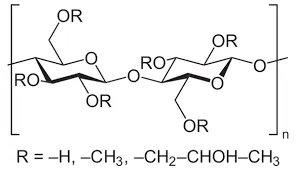
Dec . 05, 2024 02:51 Back to list
HPMC Products for Diverse Applications in Industry and Construction
The World of HPMC Products An Overview
Hydroxypropyl Methylcellulose, commonly known as HPMC, is a versatile cellulose ether that plays a vital role across various industries, including construction, pharmaceuticals, food, and cosmetics. Its unique properties make it an essential ingredient in numerous applications, impacting everyday products that many people use without even realizing it.
Understanding HPMC
HPMC is derived from natural cellulose, which is found in the cell walls of plants. The modification process involves treating the cellulose with propylene oxide and methyl chloride, resulting in a product that possesses several beneficial properties. HPMC is known for its water-solubility, thickening abilities, and ability to form gels, making it an ideal choice for many formulations.
One of the most attractive traits of HPMC is its climate stability, which allows it to maintain performance across a wide range of temperatures and pH levels. Additionally, it is non-toxic and safe for consumption, making it a preferred choice in food and pharmaceutical products.
Applications of HPMC Products
1. Construction Industry In construction, HPMC is primarily used as an additive in cement and gypsum-based products. Its thickening properties help improve the workability and adhesion of mortars, plasters, and tile adhesives. The use of HPMC in these products enhances their performance, ensuring better adhesion to surfaces and reducing the risk of cracking.
hpmc products

2. Pharmaceutical Industry HPMC plays a crucial role in the pharmaceutical sector, particularly in the formulation of controlled-release drug delivery systems. Its ability to form gels enables the sustained release of active ingredients, thereby improving the efficacy and safety of medications. Moreover, HPMC is frequently used as a binder in tablet formulations, ensuring consistent dosage and improved tablet integrity.
3. Food Industry In the food industry, HPMC is often utilized as a thickening agent and stabilizer. It enhances the texture of various food products, ranging from ice creams to sauces, providing a smooth and creamy mouthfeel. Additionally, HPMC is used as a gluten substitute in gluten-free products, allowing for improved dough texture and elasticity.
4. Cosmetic Industry The cosmetic industry benefits from HPMC’s emulsifying and thickening properties. It is found in various personal care products such as creams, lotions, and shampoos, where it acts as a stabilizer and provides a pleasant texture. Its water-retaining abilities make it an excellent ingredient for moisturizing products, enhancing skin hydration.
Environmental Considerations
One of the significant advantages of HPMC is its biodegradable nature, which makes it an environmentally friendly option compared to synthetic polymers. As consumers become increasingly aware of environmental issues, the demand for sustainable and eco-friendly products continues to grow. HPMC's natural origins and biodegradability align well with this trend, positioning it as a future-proof ingredient across various industries.
Conclusion
The versatility of HPMC products highlights their importance in modern manufacturing and formulation processes. As industries continue to innovate and prioritize sustainability, HPMC stands out as a reliable and multifunctional ingredient. From improving product performance in construction to enhancing consumer safety in pharmaceuticals and food products, HPMC plays a pivotal role in shaping the quality of products we use daily. As we move toward a more sustainable future, the demand for HPMC products is expected to grow, further establishing their significance in diverse applications.
-
Versatile Hpmc Uses in Different Industries
NewsJun.19,2025
-
Redispersible Powder's Role in Enhancing Durability of Construction Products
NewsJun.19,2025
-
Hydroxyethyl Cellulose Applications Driving Green Industrial Processes
NewsJun.19,2025
-
Exploring Different Redispersible Polymer Powder
NewsJun.19,2025
-
Choosing the Right Mortar Bonding Agent
NewsJun.19,2025
-
Applications and Significance of China Hpmc in Modern Industries
NewsJun.19,2025







